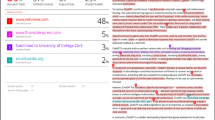Abstract
This article describes the work of Project ImpactCS, which was initiated to define the core content and pedagogical objectives for integrating social impact and ethics into the computer science (CS) curriculum. Over a three year period the project will address three major problems that hamper the implementation of across-the-board curriculum change: the lack of a well-specified definition of what the core content and learning objectives should include, the lack of a strategy for adapting and adopting existing materials that address the core topics into the existing CS curriculum, and the lack of awareness and expertise on the part of most CS faculties regarding the need and methodology for presenting such material in their courses. This report provides the conceptual frame-work and describes the learning objectives, called knowledge units, for defining a new content area in the computer science curriculum. It also discusses strategies and innovative pedagogical techniques for implementing the knowledge units into the curriculum.
Similar content being viewed by others
References
ACM/IEEE-CS Joint Curriculum Task Force (1991) Computing Curricula 1991. ACM/IEEE-CS Joint Curriculum Task Force Report. New York: ACM Press.
ACM Curriculum Committee on Computer Science (1979) Curriculum 78: Recommendations for the undergraduate program in computer science. Communications of the ACM 22(3), 147–66.
Collins, R. and Miller, K. (1992) Paramedic ethics for computer professionals. Journal of Systems and Software January 1992, 1–20.
Computer Sciences Accreditation Board (1987) Criteria for accrediting programs in computer science in the United States. Technical report.
ErmannM. D., WilliamsM. B. and GutierrezC. (1990) Computers, Ethics, and Society. New York: Oxford University Press.
Friedman, B. and Winograd, T. (eds) (1990) Computing and Social Responsibility: A Collection of Course Syllabi. Palo Alto, CA: Computer Professionals for Social Responsibility.
Gotterbarn, D. (1991) The capstone course in computer ethics. In Proceedings of the National Conference on Computing and Values, New Haven, CT.
GotterbarnD. (1995a) Responsibility regained. In D. G.Johnson and H.Nissenbaum (eds) Computer Ethics and Social Values. pp. 18–24. Englewood Cliffs, NJ: Prentice Hall.
Gotterbarn, D. (1995b) A tool kit of computer ethics activities for computer science classes. In Proceedings of National Educational Computing Conference, Baltimore, MD.
HuffC. W. and FinholtT. (1994) Social Issues in Computing: Putting Computing in its Place. New York: McGraw-Hill.
HuffC.W., and JawerB. (1994) Toward a design ethic for computing professionals. In C.W.Huff and T.Finholt (eds) Social Issues in Computing, pp. 691–713 New York: McGraw-Hill.
ImpactCS Steering Committee (May, 1995) Consequences of Computing: A Framework for Teaching the Social and Ethical Impact of Computing. First Report of the Project ImpactCS Steering Committee. GWU-ICTSP Technical Report No. 95–03, George Washington University, Washington, DC.
ImpactCS Steering Committee (1996) Implementing the Tenth Strand: Extending the Curriculum Requirements for Computer Science. Second Report of the ImpactCS Steering Committee. GWU-ICTST Technical Report No. 96–01, George Washington University, Washington, DC 20052.
JohnsonD. G. and NissenbaumH. (eds) (1995) Computer Ethics and Social Values. Englewood Ciffs, NJ: Prentice Hall.
KlingR. and DunlopC. (1991) Computerization and Controversy: Value Conflicts and Social Choices. New York: Academic Press.
Martin, C. D. and Holz, H. J. (1991) Non-apologetic computer ethics education: A strategy for integrating social impact and ethics into the CS curriculum. In Proceedings of the National Conference on Computing and Values, New Haven, CT, 50–66.
MillerK. (1988) Computer ethics in the curriculum. Computer Science Education 1, 37–52.
RosenbergR. S. (1992) The Social Impact of Computers. New York: Academic Press.
ShneidermanB. (1990) Human values and the future of technology: A declaration of empowerment. Computers & Society 20(3),1–6.
ShneidermanB. (1992) Designing the user interface. Reading, MA: Addison-Wesley.
SteeleF. R. (1995) Planning a global human cyberspace. The Second NCLS Conference on Legal, Ethical, and Technological Aspects of Computer Use and Abuse. Conference Report, Washington, DC: AAAS.
SwinyardW. R., RinneH. and Keng KauA. (1990) The morality of software piracy: a cross-cultural analysis. Journal of Business Ethics, 9(8), 655–64.
Author information
Authors and Affiliations
Rights and permissions
About this article
Cite this article
Martin, C.D., Huff, C., Gotterbarn, D. et al. A framework for implementing and teaching the social and ethical impact of computing. Educ Inf Technol 1, 101–122 (1996). https://doi.org/10.1007/BF00168276
Issue Date:
DOI: https://doi.org/10.1007/BF00168276



